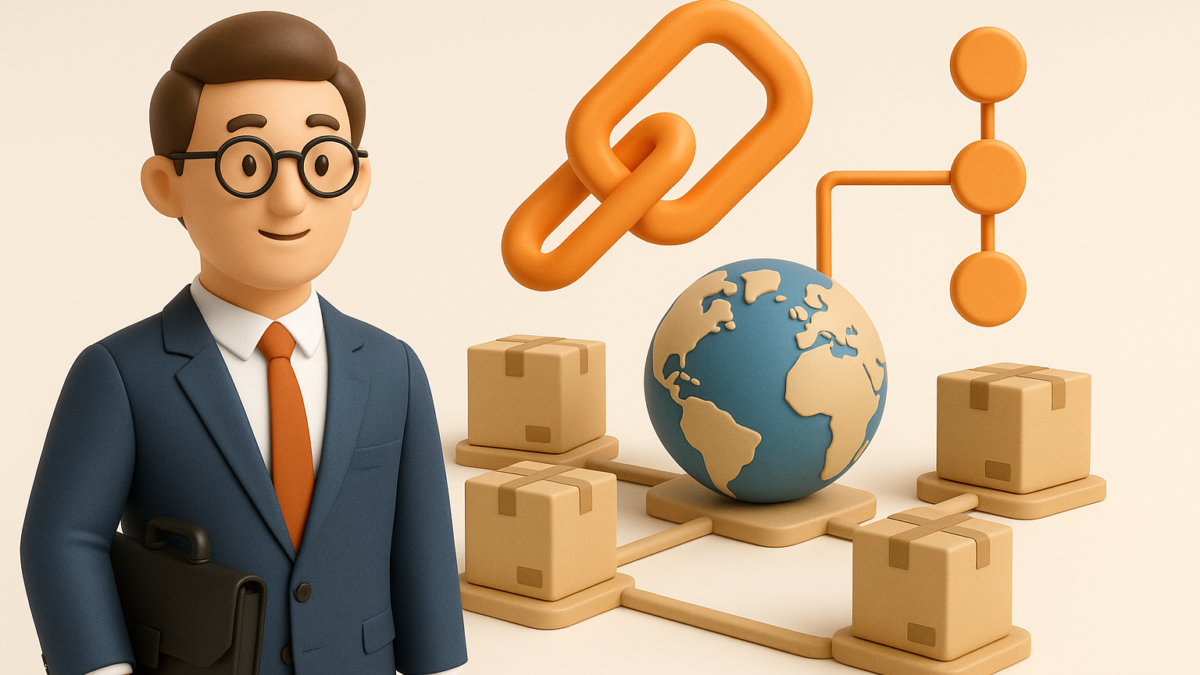The Rise of Blockchain in Supply Chain Management: 2025 Trends
Supply chains are the backbone of global commerce, but they face challenges like lack of transparency, inefficiency, and fraud. Enter blockchain in supply chain a technology transforming how goods move from manufacturers to consumers. In 2025, blockchain adoption is accelerating, offering real-time tracking, immutable records, and improved efficiency.
This blog explores key trends, benefits, challenges, and real-world applications of blockchain in supply chain management.
What Is Blockchain in Supply Chain?
Blockchain in supply chain refers to the use of blockchain technology to record, verify, and track transactions across the supply chain. Each transaction is stored on a decentralized, immutable ledger, creating a transparent and secure system.
Key Features:
- Decentralized Ledger: Eliminates single points of failure.
- Transparency: Real-time access to supply chain data for stakeholders.
- Traceability: Full tracking of goods from origin to delivery.
- Smart Contracts: Automates agreements and payment processing.
Current Trends in 2025
1. End-to-End Visibility
Companies are using blockchain to monitor goods from raw material sourcing to end-user delivery. This improves accountability, reduces fraud, and enhances customer trust.
2. IoT Integration
Integrating IoT devices with blockchain provides real-time data on shipment location, temperature, and quality, critical for sectors like pharmaceuticals and food.
3. Sustainable Supply Chains
Blockchain enables eco-friendly tracking, helping companies verify sustainable sourcing, carbon footprint, and ethical labor practices.
4. Tokenization of Assets
Some firms are tokenizing inventory and commodities to improve liquidity and streamline trading in the supply chain ecosystem.
Benefits of Blockchain in Supply Chain
- Enhanced Transparency: Every transaction is immutable and visible to authorized parties.
- Reduced Fraud: Prevents counterfeit goods and unauthorized tampering.
- Improved Efficiency: Smart contracts automate approvals and payments.
- Cost Savings: Reduces administrative overhead and intermediary costs.
- Traceability: Essential for industries like pharmaceuticals, luxury goods, and food safety.
Example: Walmart uses blockchain to track fresh produce, reducing contamination risks and improving recall efficiency.
Challenges and Considerations
While blockchain in supply chain is transformative, companies must navigate:
- Integration Complexity: Combining blockchain with existing ERP and logistics systems can be challenging.
- Regulatory Uncertainty: Compliance requirements differ by region and industry.
- Data Privacy Concerns: Sharing sensitive business information across a decentralized network requires robust privacy controls.
- Scalability: High transaction volumes can slow down blockchain networks if not properly optimized.
Real-World Applications
- Food Industry: Trace contaminated products quickly, ensuring safety and reducing waste.
- Pharmaceuticals: Prevent counterfeit drugs by tracking every step from manufacturer to patient.
- Automotive: Verify parts authenticity and manage multi-tier suppliers efficiently.
- Luxury Goods: Protect brand integrity by preventing counterfeit goods.
Future Outlook
By 2025 and beyond, blockchain in supply chain will evolve with AI integration, predictive analytics, and enhanced automation. Companies adopting blockchain early will gain a competitive advantage, with smarter, faster, and more transparent supply chains.
Emerging Trends:
- Predictive logistics using AI and blockchain data.
- Carbon credit tracking for sustainability reporting.
- Fully tokenized supply chains for seamless digital trading.
How Businesses Can Leverage Blockchain in Supply Chain
- Invest in Blockchain Platforms: Deploy scalable, interoperable blockchain solutions.
- Integrate IoT and AI: Combine real-time monitoring with predictive insights.
- Ensure Regulatory Compliance: Stay updated on global supply chain laws.
- Educate Stakeholders: Train employees and partners to adopt blockchain processes.
Call-to-Action (CTA)
Boost Your Lead Generation Today – Amplify your reach and generate high-quality B2B leads by syndicating your content across top industry platforms. Get Started Now
See Also: Blockchain for Background Verification: Ensuring Trust in Hiring





